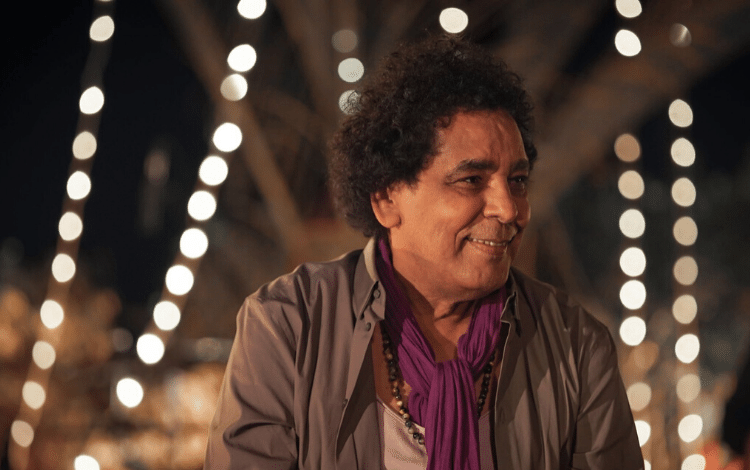With the #BlackLivesMatter movement circulating everywhere, the world is finally realizing that it’s time this cause gets the spotlight it deserves.
But unfortunately, racism knows no boundaries, and racism towards people of color has been around even in the Arab region, against Sudanese, Nubians, Aswanis, among others. Despite their remarkable contributions in a number of fields like pop culture, poetry, and music, Arabs of color have repeatedly been mocked and criticized, for the same reason they’re still being discriminated against in USA, their color.
It’s about time discrimination against race, color, gender, or ethnicity, comes to an end. Here are a few of the Arab icons who have left a mark through their work, and others who have left us but will surely be remembered for decades.
Mohamed Mounir
Dubbed as “El King”, Mohamed Mounir has been Egypt’s most iconic voice. Mounir, who was born in Aswan in 1954, has been entertaining us with his music for years now. From Nubian songs, to revolutionary Egyptian songs, to romance, Mounir has released over 30 albums so far. He also took part in films directed by the legendary international Egyptian director Youssef Chahin, “Al-Youm Al-Sades” (The Sixth Day) and “Al-Maseer” (The Fate). No Egyptian or Arab alive wouldn’t know who Mohamed Mounir is, he’s a true legend!
Ali Hassan Kuban
Known as the “Godfather of Nubian music”, Ali Hassan Kuban was an Egyptian musician who was born in a small village in Nubia. He played several musical instruments, formed his own band, became a star for Nubians, and later gained international recognition when his music went global in the 1980s through his hit “From Nubia to Cairo”.
Abdel Rahman el-Abnudi
Born in Upper Egypt in 1939, Abdel Rahman el-Abnoudi is a popular Egyptian poet who was widely seen as the voice of the poor and the working class in Egypt. He was often called “Al-Khal” (The Uncle), and his poetry expressed strong political views. His words were sung by prominent singers like Abdel Halim Hafez, Sabah, Najat, Shadia, and others. In 2001, he became the first Egyptian colloquial poet to receive the Egyptian State Award for Arts.
Al-Balabil
Al-Balabil (The Nightingales) is a band consisting of three sisters, Amal, Hadia, and Hayat, who began their singing career in Sudan in the 1970s when it was still highly controversial for women to sing. They became one of Sudan’s most popular singing groups, and were even referred to as the “Sudanese Supremes”.
Ahmed Mounib
Ahmed Mounib is one of the gifts that Nubia gave to us. As the first artist to play oud in Nubia, he introduced a new style of Nubian music and quickly became one of the most important Nubian artists through his unique approach to singing and music. He added a modernized yet oriental touch to Nubian heritage through his songs. He composed a number of songs for the King, Mohamed Mounir, which strongly contributed to Mounir’s fame, including “Shababeek”, “Hawen Ya Leil”, “Hadouta Masreya”, as well as many others.
Setona
Setona is a Sudanese artist who started her career as a musician and whose hits feature a musical mix from several African countries. She later established herself as a “wedding-consultant” for traditional wedding ceremonies, where she is considered a henna expert. Setona became known to the Egyptian public through her song “Chocolata” in the famous Egyptian movie “Se’edy fel Gam’a Al Amrikeya”. Today, she is called the “Queen of Henna” in Cairo.



